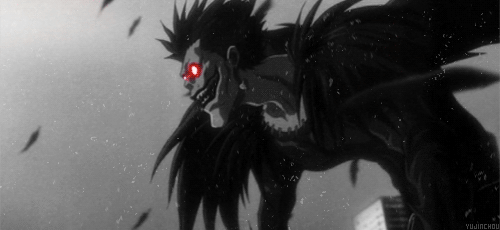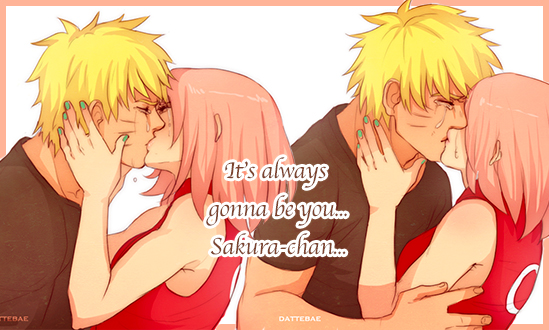Because my reply is embarrassingly tl;dr, I'm hiding it behind a cut....
Click to Read
Yeah, I don't know. It's kind of strange, really. I do feel that female characters are often held to a higher, and often harsher, standard than males -- and often by female readers.The aspect that bothers me the most is the tendency to criticize any female character who becomes involved in a romance, or if romantic feelings are any part of her storyline. As if having romantic feelings makes a girl any less of a heroine, or that loving someone and dedicating a certain amount of energy cycles to having a relationship with him means that's all she's about.Naruto loves Sakura and he has expended energy cycles in the hopes of having a relationship with her, but he doesn't get denigrated as being "pairing fodder" -- nor are sweeping generalizations made that romance or his feelings for Sakura are all he's about. It doesn't make Naruto seem weaker to most fans. (Although I know there are some really hateful types out there who think Naruto is a pansy for his softer side, while Sasuke is celebrated as "cool." Yuck.)Through my experience in other fandoms, I have a low tolerance for attacks (especially by "feminists") who shred good, solid female characters for having a domestic side, or for undertaking motherhood, or for not being a flame-breathing ballbuster, or for having romantic feelings -- even if they don't completely define her. It's as if being female and expressing the characteristics and capabilities of the sex is to be avoided if you want to be taken seriously.SMH.In the case of Naruto, Kishimoto might not be the best at writing women but I feel he has made an effort to represent the spectrum of female experience fairly well. For example: Kurenai, a competent kunoichi and sensei who was temporarily sidelined by motherhood; Mikoto, who has been shown as a mother and housewife only; Kushina, who was a jinchuuriki, formidable kunoichi, and wife of a Kage who also was temporarily sidelined by motherhood; Tsunade, who had a love life but no children, who had what might be considered masculine flaws (drinking and gambling) but who is powerful with an ultimately successful career; Hinata, who is weak and timid and mostly defined by her preoccupation with Naruto and her feelings for him.Then there's Sakura. Yes, romance is a part of her story, but it's unavoidable because she is the object of the hero's affection. And while her feelings for Sasuke are part of her development from shallow, inexperienced girl to wise, thoughtful woman, they also serve as a simple contrivance to keep her and Naruto apart until the end. Winning her love is another action item on Naruto's list of heroic deeds.However, categorizing Sakura as nothing more than pairing fodder, and suggesting that her purpose in the story is just to fill that role, is to ignore the truth about the way Kishimoto has painstakingly characterized her and everything she's done.It's kind of a ridiculous notion when you think about the big picture. Sakura has been dedicated to Naruto because she is his teammate, because she is a well-trained ninja with superior skills and bravery, and because she believes in his vision; even her "confession of love" to Naruto was about saving his life and trying to do the right thing for Konoha and the alliance.As far as Sakura's own motivation has been concerned, it has never been about romance with Naruto. That's the point. That's the whole reason why the pairing issues have been so confounding. Sakura hasn't been in love with Naruto, or at least hasn't yet realized it fully.Her personal accomplishments throughout the story have nothing to do with her romantic feelings for Naruto OR Sasuke. They are not the reason she became Tsunade's apprentice or trained so diligently to be an excellent medic. She may have used their growing strength and capabilities as inspiration to prove herself equal, but that's not rooted in romance.In contrast, that's why Hinata is so frustrating. She never puts her thoughts of Naruto aside. She is apparently incapable of being about more than her obsessive feelings. Sakura has way too much to do -- she has way too many demands and expectations placed upon her to be able to sit in a pool of romantic fantasy and spoon it over herself. Romance -- with Sasuke or Naruto -- takes an obvious back seat to Sakura's responsibilities.In my view it is unfair and just plain insulting to negate Sakura's actions and accomplishments as an individual because she happens to play a part in the hero's love life and have feelings of her own.
No, that's the same interview I was talking about. I have always understood that during that interview someone asked Kishimoto if Hinata was not a better heroine, and he said, "Everybody says Hinata, Hinata, but Sakura is not Hinata." And then he went on to say that while Hinata might be acting more like a heroine at that point, Sakura was the heroine and that he would be writing her more that way in the future. Or something similar to that.I can't read Japanese, and therefore I am a victim of whatever translations I can find. I make every effort to understand what he actually says, but I can never be sure. If I have mistakenly approximated Kishimoto's response, my apologies to all. I've probably looked up that quote a dozen times, hoping to get it right.
I would agree with your definition.
I'm not so much interested in my perception of Sakura, or other people's perception, but in attempting to understand Kishimoto's perception of Sakura and his intentions toward her character. That's the best way I know to approach a thoughtful critique, because it comes the closest to correcting for my personal bias.
You bring up very good points, and I don't disagree with you. Consistency and continuity of a story and characterizations do depend on how a reader perceives them. And for the record, I am truly not trying to say that my perceptions are correct and those of others are incorrect.I am merely trying to point out that oftentimes disappointment with a story and its author comes from a reader's expectations that are formed on perceptions that have not evolved or that were incorrect from the start, or that a reader has not tested through the exercise of objective critique. I'll try to explain what I mean.First, I'll attempt to summarize your comments.Sakura's characterization is a disappointing because:1. Sakura stated many times that (a) "she will protect her teammates" and (b) "bring her team back together."2. At the first Team 7 reunion, Sakura concluded that, "There is nothing I can do but have faith in them." Such a statement and attitude was a contradiction to her characterization and previous statements to that point, and the purpose of her character "went down the drain."3. After the VotE, Sakura said she was going to train and that she and Naruto would bring back Sasuke, "together."4. Only recently, through the Sage, was it made clear that the conflict ultimately exists between the two boys due to reincarnation, etc., and Sakura is excluded from the resolution.5. Readers now feel forced to change their view of Sakura with no warning beforehand.#1, #2, and #3 are similar so I'm going to combine my response to them. First of all, yes, Sakura did say all those things and those thoughts were a clear part of her motivation. But Kishimoto has shown us that Sakura has not remained static. With each experience he shows us that she is learning, growing, and evolving. That means her thoughts, feelings, motivations, and choices are evolving too.Perhaps at one point "protect her teammates" meant only Naruto and Sasuke, but is it reasonable to assume that Kishimoto has intended for her loyalty and dedication to remain restricted to that definition? Especially when Naruto's hasn't? And Sasuke's obviously hasn't? All three characters have broadened their understanding and commitment to their goals for the world around them, far beyond their genin days when their immediate team was everything.Is it not possible that the Sakura who took down Pain's summon by herself, who organized the hospital and triage, and healed the wounded -- while her teammate, Naruto, was on the front line battling Pain -- had, along with Naruto, expanded her "team" commitment to all of Konoha who were fighting and suffering with them?Has Sakura not been the one to mentally commit herself -- and everyone else -- to supporting Naruto's fight and to help him carry the burden of responsibility during the current war? Has Sakura not been the one to rally the soldiers with an impassioned speech on Naruto's behalf -- while she was healing him, no less? Was that not an act of "bringing her team back together"?To say Sakura's characterization is a disappointment because she is no longer restricted to her former Team 7 concerns and motivations is to deny her growth. It is to want her character to remain consistent with old statements and expectations, rather than acknowledge that she is being consistent to her core personality and the demands of her role as a leader of the new generation.Looking at it from Kishimoto's point of view, would leaving Sakura behind in terms of maturity and comprehension of her circumstances have been consistent with her character -- when he has been showing us all along that Sakura is very intelligent and that she thinks about her shortcomings, her responsibilities, and her role in the bigger picture?For all three of them, Team 7's world is now much bigger than Team 7. Even if it wasn't, Sasuke has consistently resisted being a part of it. He wants nothing to do with Naruto and Sakura's way of life. How could Sakura possibly "protect her teammates" and "bring her team back together" when Sasuke wants none of it?In fact she tried that, even when Naruto said he still wanted to save Sasuke for himself. Sakura tried to protect Naruto from Sasuke and Sasuke from himself by setting out to kill Sasuke, and it was a miserable failure. But through Naruto's steadfast commitment and willingness to face whatever was necessary to help Sasuke find peace, Sakura realized that her attitude and approach had been wrong. She realized that she couldn't "protect her teammates" directly, and that the best hope to "bring her team back together" was to have faith that they would ultimately settle their differences.From that point on, Sakura has thrown herself in with Naruto wholeheartedly. She found out the hard way that trying to engineer things on her own -- things that Naruto didn't want and went against his nindo -- only fractured her old team further. Now she and Naruto are united. Kishimoto has consistently shown us this through Sakura's words and actions.As for #4, although at this point it does seem that Naruto and Sasuke will battle Madara together as two the halves of the Sage's legacy, excluding Sakura, that does not mean that Sakura won't be instrumental in what is likely to be the final battle -- the one between Naruto and Sasuke.Again, looking at it from Kishimoto's perspective and what he's set up, we have known for AGES that Naruto and Sasuke represented the sons of the Sage. The reincarnation thing just cemented the hows and whys of it. Is it inconsistent that Sakura is not part of a centuries-old rivalry between two brothers? Especially when the conflict existed long before Team 7, and has nothing to do with Sakura's personal goals?A considered critique would take into account that there are two sets of issues at play, and that Sakura is intimately involved in one but not the other. While she may have no direct part in the "brothers" joining forces to bring peace to the world, we must wait to see what role Sakura plays in the final resolution between Naruto and Sasuke as friends and members of Team 7.As for #5, I think perhaps that is the biggest issue. Readers may feel that they have been "forced to change their view of Sakura with no warning beforehand," but is that because there was truly no warning? Or because readers had formed specific expectations of what Sakura's role was going to be, and for whatever reason were unable to incorporate the evolution of Sakura's character along the way or realize that evolution would mean changes in the way her role played out?To make a long reply longer that it needs to be....My point is that a considered critique should be willing to look at Kishimoto's characterizations objectively, and from his perspective as much as possible. Kishimoto considers Sakura to be the heroine. Has he written her as a heroine? Have her heroic actions been consistent with her characterization and the expressed purpose of her role even if they were transformed by experiences along the way?What prompted my original post was a reaction to general sentiments such as "Sakura is diminished because she's not going to get to do this or that" and "Kishimoto has screwed up because Sakura isn't a big enough part of the action" and the like.Kishimoto never said or made it obvious exactly how Sakura's role would play out. To be totally disappointed and believe he has failed because Sakura isn't doing what they expected is more about their expectations than his choices.It's is the reader's responsibility to figure out if their expectations really went off the rails. After all, Kishimoto has been uneven and more than a bit dodgy with his characterization of Sasuke, so maybe he's just a hack. But the difference -- in my opinion, at least -- is that both Naruto and Sakura's characterizations pass the acid test of objective critique while Sasuke's characterization really doesn't.
No problem at all. I understand, and I'm really not trying to tell anyone how to feel or what to think either. I suppose I just don't want people to be unhappy with Sakura or her accomplishments.
Plus I enjoy talking about this kind of thing for a change.
Thank you for this wonderful analysis, now I feel thoroughly chastised for my earlier complaints ![]() but also much more optimistic.
but also much more optimistic.






























